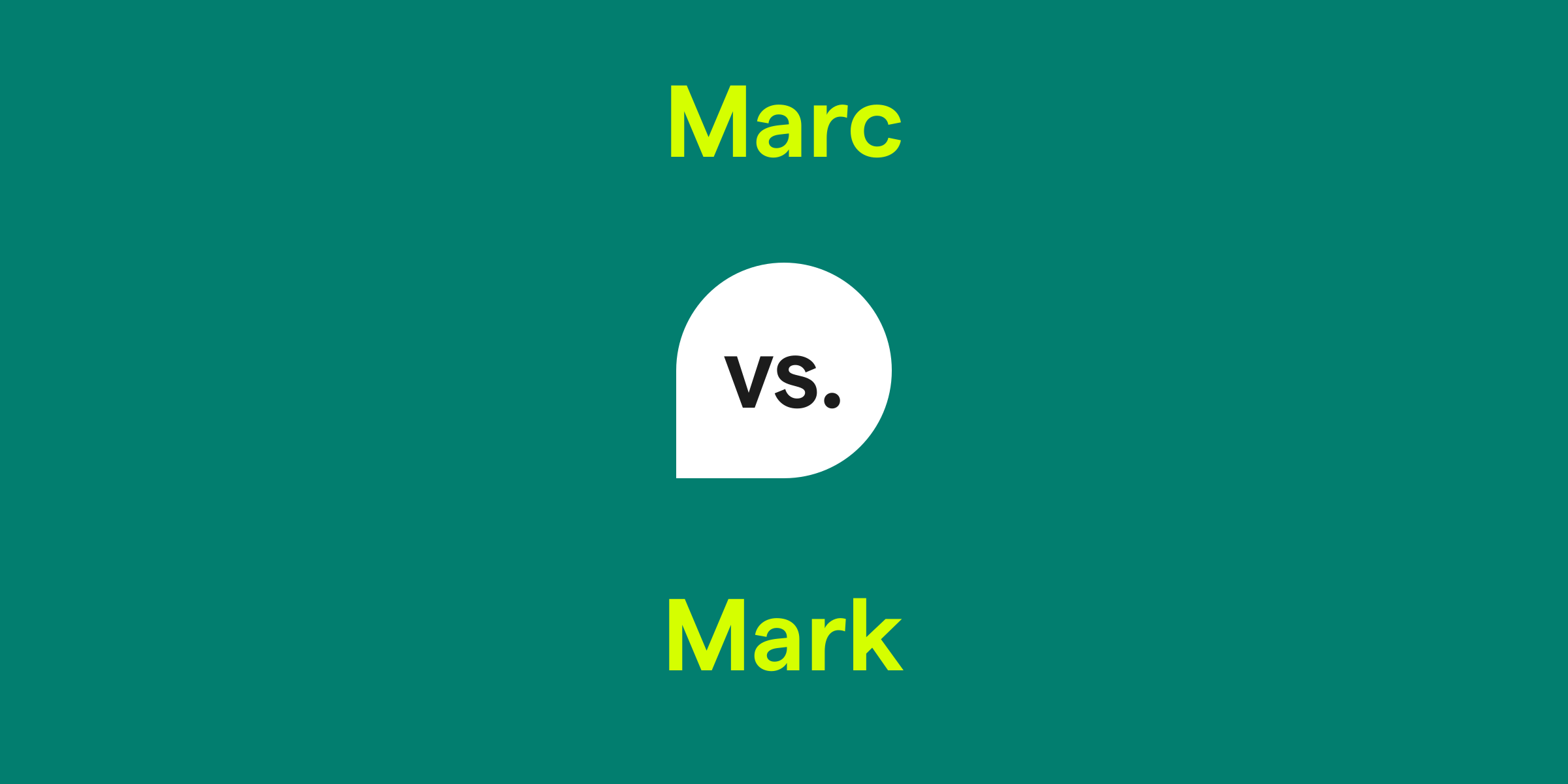Marc vs. Mark: What's the Difference?
Marc and mark are words that might appear similar, but they serve different contexts. Marc is typically a proper noun used as a male given name of French origin, equivalent to Mark in English. On the other hand, mark as a noun refers to a visible impression or trace on a surface, and as a verb, it denotes the action of making such an impression or noting something as significant.

How do you use the Marc in a sentence?
The word Marc is primarily used as a personal name. It's a common choice for parents who favor French names or are looking for an alternative to the more traditional name Mark. When used, it identifies a person and can be a subject or object within a sentence.
Examples of marc in a sentence
- Marc is planning to join us for dinner tonight.
- When you see Marc, can you tell him I called?
- They presented the award to Marc for his outstanding achievements in research.
How do you use the word mark in a sentence?
The word mark can function as both a noun and a verb. As a noun, it represents a symbol, sign, or indication of something, like a grade on an exam or a scratch on a table. As a verb, to mark means to create a symbol or notice something important. It's common in both academic and everyday contexts.
Examples of mark in a sentence
- Please mark your answer clearly in pencil.
- The ancient tree bore marks where initials had been carved many years ago.
- Celebrities often mark important milestones by donating to charity.
Marc and mark definition, parts of speech, and pronunciation
Marc definition:
Marc is a masculine given name, the French variant of Mark, derived from the Latin 'Marcus'. It is often used in French-speaking countries and regions.
Marc parts of speech:
Marc pronunciation:
Marc is pronounced as /mɑːrk/ in phonetic spelling.
Mark definition:
As a noun, mark signifies a trace, symbol or indicator, such as a sign or a grade. As a verb, it refers to the action of creating such a trace or noting the importance or existence of something.
Mark parts of speech:
Mark pronunciation:
Mark is pronounced as /mɑːrk/ in phonetic spelling, identical to marc.
Marc is a masculine given name, the French variant of Mark, derived from the Latin 'Marcus'. It is often used in French-speaking countries and regions.
Marc parts of speech:
- As a noun: Marc received high praise for his recent novel.
Marc pronunciation:
Marc is pronounced as /mɑːrk/ in phonetic spelling.
Mark definition:
As a noun, mark signifies a trace, symbol or indicator, such as a sign or a grade. As a verb, it refers to the action of creating such a trace or noting the importance or existence of something.
Mark parts of speech:
- As a noun: The student's essay was excellent, earning a high mark from the teacher.
- As a verb: The committee will mark the centenary with a series of celebrations.
Mark pronunciation:
Mark is pronounced as /mɑːrk/ in phonetic spelling, identical to marc.
Marc vs. mark in a nutshell
To summarize, Marc is a proper noun used as a given name, specifically its French form, while mark has versatile roles as both a noun and a verb denoting an impression or note of significance. Despite their phonetic similarities, Marc and mark cater to contrasting aspects of language and should be effortlessly distinguishable in context. Regardless of their usage, understanding the nuances between these terms ensures effective and appropriate communication.
Get AI Writing Assistance Wherever You Type
Make sure your vocabulary is on point and every punctuation mark is in the right place, no matter where you’re working. Grammarly works across more than 500,000 websites and apps so you can improve your writing without copying, pasting, or breaking focused.

More Commonly Confused Words
Interest piqued? Pore (not pour) over other commonly confused words to help your writing reach peak (not peek) performance.